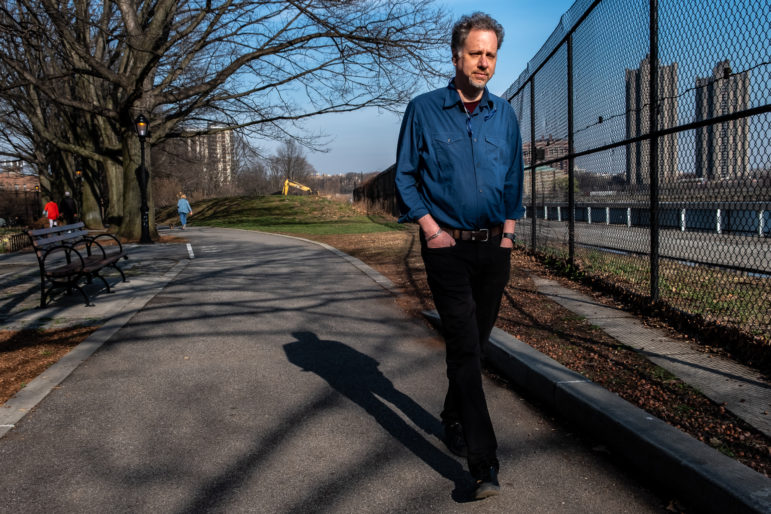
Adi Talwar
Jordan Moss’ father is in an assisted living facility in Yonkers where visitors are also no longer allowed.Yolanda Czerech’s voice trembled when she spoke about not being able to see her grandmother. Over a week ago, her mother went to a nursing home in Middle Village, Queens and was told that visitors were no longer allowed inside to protect residents from the novel coronavirus.
Since then, Czerech and the rest of her family have tried to strategize different ways to help her grandmother, an immigrant from Poland who is in her 90s and doesn’t speak English, to understand the situation outside. They’ve tried calling, but Czerech’s grandmother is hard of hearing and usually remains silent during phone calls. The family recently sent a package with a letter to the nursing home explaining the situation outside, but Czerech said that her grandmother is probably lonely.
Family members like Czerech understand the need for caution, and she personally appreciated that the nursing home is going to lengths to protect residents with chronic health issues like her grandmother, but she’s worried that her grandmother may not understand why no one has gone to visit for so long.
“What we are concerned about is that she might develop some sort of depression or she might just die of a broken heart. My mom used to visit her every day and my mom cooked for her every day,” she said. “We wanted to make her happy…it’s really heartbreaking.”
Nursing homes across New York City and around the country have been restricting visitors and in many cases banning anyone that is not essential staff from entering the building altogether.
Staying Updated
Leading Age New York, a network that’s made up of retirement homes, nursing homes, and assisted living facilities, has had the task of updating members to protect nursing homes. James Clyne Jr., the president and CEO of Leading Age, confirmed that it has tried to communicate with its members as concern for the outbreak intensified across the United States in late February.
“We put up a webpage that has guidance [for dealing with COVID-19] and we also communicate directly with [members] if there’s a change in that guidance,” he explained.
The “coronavirus resources” page has a number of links to suggestions and prevention guidelines from the New York Department of Health for care agencies and hospice providers and ways to request resources like masks and other necessary prevention materials. Clyne also said that he has been in constant contact with an Office of Emergency Management and has worked around the clock to update members.
“[The Office of Emergency Management] is having regular calls and there’s great communication, but they’re still short on supplies,” Clyne said. “Short on everything — including personal protection equipment.”
Nursing homes have protocols in place to deal with infectious diseases and medical staff are trained to keep residents safe, however, there is currently no known cure or vaccine for COVID-19. Considering that some people who have contracted the virus do not always show symptoms and that, it is currently unsafe to allow outside visitors that are not necessary staff. According to Clyne and medical authorities around the world, one of the few ways to sustainably protect staff and older residents is for the general public to avoid going outside and spreading the virus to vulnerable people, especially as organizations like Leading Age grapple with the need for equipment.
“Stay home,” Clyne urged.
Staying Connected
There are almost 1.5 million city residents that can be considered seniors, aged 65 and over. According to Ruth Finkelstein, the executive director of the Brookdale Center for Healthy Aging at Hunter College, about three percent, or more than 40,000 of those seniors currently live in nursing homes or a type of assisted living facility in the New York Metropolitan area.
She agrees with Clyne that staying home is one of the best ways to protect older residents in and outside of nursing homes. There are a number of factors that can increase the rate of infection throughout the city, which means there cannot be exceptions for family members until the pandemic has passed.
“At this time in New York, it’s clear that these terribly restrictive rules are appropriate,” Finkelstein said.
Doctor Jeffrey Farber, the president and CEO of The New Jewish Home, said that the network of nursing homes and senior housing has taken advice from health authorities and made changes to work schedules and staffing to protect the older residents. As of early March, visitors were no longer allowed into any of the nursing homes, and all corporate staff began to work from home.
Anyone that does come into a New Jewish Home facility for whatever reason is screened by having their temperature taken and must answer a questionnaire about symptoms and any recent travel. The number of volunteers at the facilities has also been limited and staff members are constantly educated about the disease whenever a health authority has new information to offer.
“We created a new policy on COVID-19 and how to identify a patient who could be at high risk, we created a separate new isolation room so that we can quickly put someone there then work with the Department of Health,” Farber explained.
The New Jewish Home has begun to lean on social workers and therapists to help residents cope with the lack of interaction from regular visitors. Farber and other staffers have encouraged residents to find new ways to interact with family and to call loved ones regularly to keep their spirits up.
“[We] help our residents connect with their loved ones who can no longer visit via telephone or Skype or FaceTime,” he said.
Lesser evil
Finkelstein said that there are pros and cons to socially isolating seniors in nursing homes and agreed that seniors should use all available technology to connect with loved ones whenever they can’t see them. Seniors who are capable of doing so should be shown how to access emails and video conferencing and other forms of communication, and how to use YouTube videos and other content like easy workouts that can be done at home and virtual entertainment to keep nursing home residents engaged and entertained.
“The psychological and physical effects of loneliness are real — it contributes to depression. It also contributes to disorientation,” she explained. “Of course, call them every day, but also get the kids [and grandkids] to call them every day.”
As the pandemic continues to spread and claim lives, Finkelstein pointed out that if nursing home residents are kept safe, they will not have to go to NYC hospitals which are already overburdened and under-resourced by the virus’ spread. Though she worries for isolated seniors, the immediate need is to stop infections. Once the city makes it past that stage, it can begin to address issues that may have been caused by social distancing.
When told that some nursing homes were trying to set up video calls for residents, Yolanda Czerech immediately perked up. She said she was going to call her grandmother’s nursing home and see they could set up a phone or other device that would allow her grandmother to see her.
“If she sees me, I can wave to her,” Czerech said.
Jordan Moss, a Bronx resident and artist (and former City Limits Bronx editor), understands the importance of staying away from nursing homes during the pandemic, but like Czerech he’s having a hard time staying away. Moss’ father is in an assisted living facility in Yonkers where visitors are also no longer allowed. A few weeks ago, he received an email from his father’s living facility that outlined why relatives could not visit until the pandemic was under control.
“He has good help there but it’s not around the clock. So it’s like if my dad were to need something at night, I can’t run up over there and help him,” Moss explained.
He said he drops things off for his father at the assisted living facility and calls regularly, but it’s not the same as visiting. He also worries that his father might pass away from old age before he’s able to visit again.
“It’s a good place… they’re doing the right thing,” Moss said. “But he’s 96 and a half, anything could happen.”



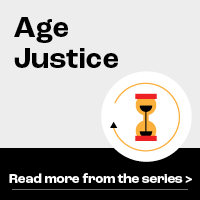
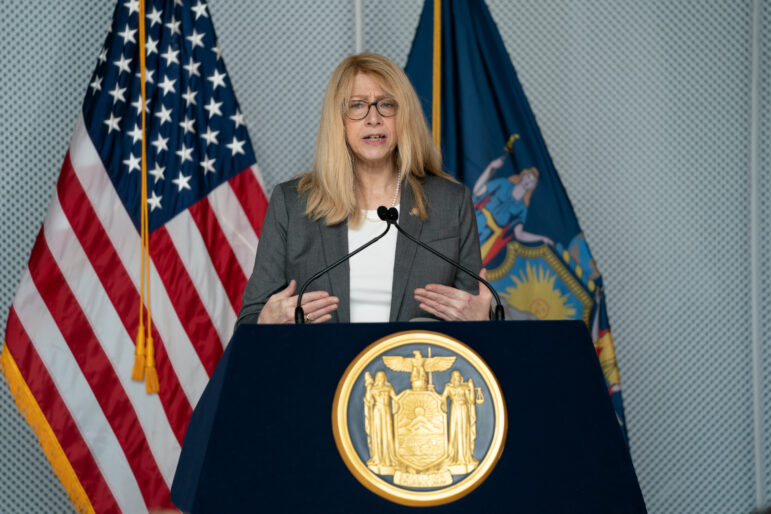
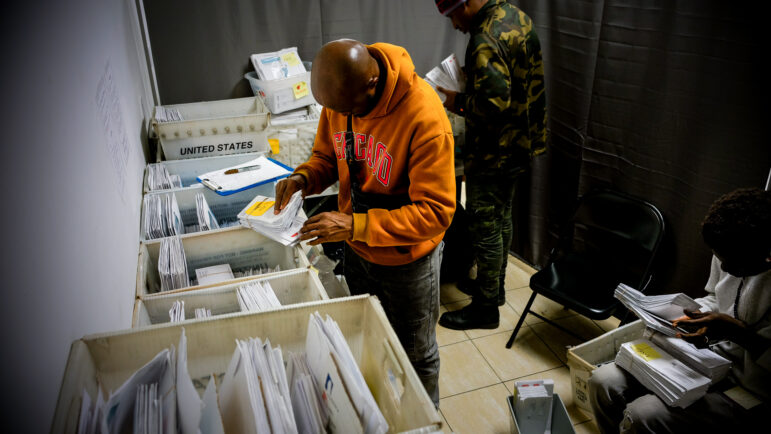
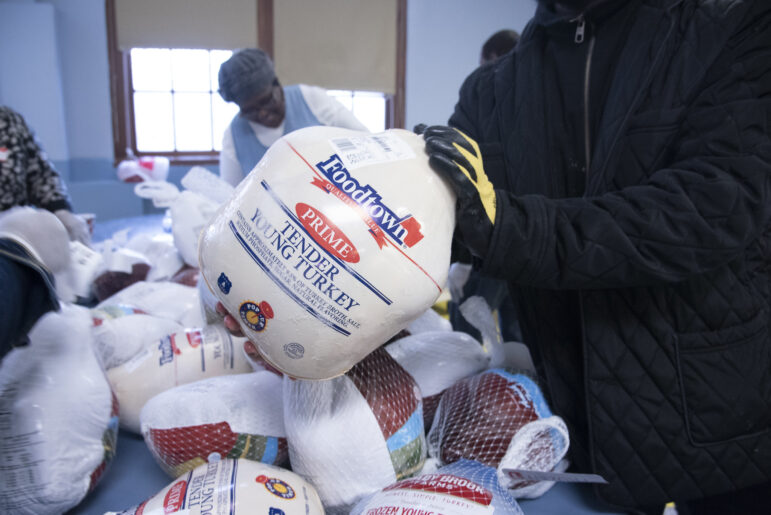
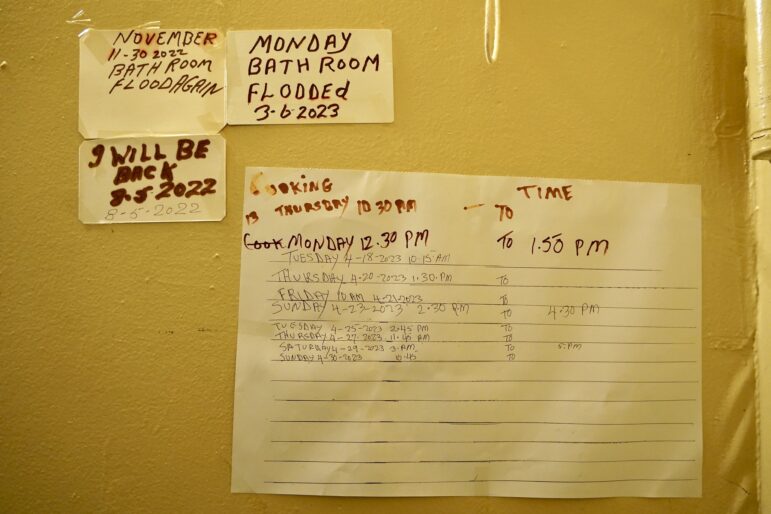
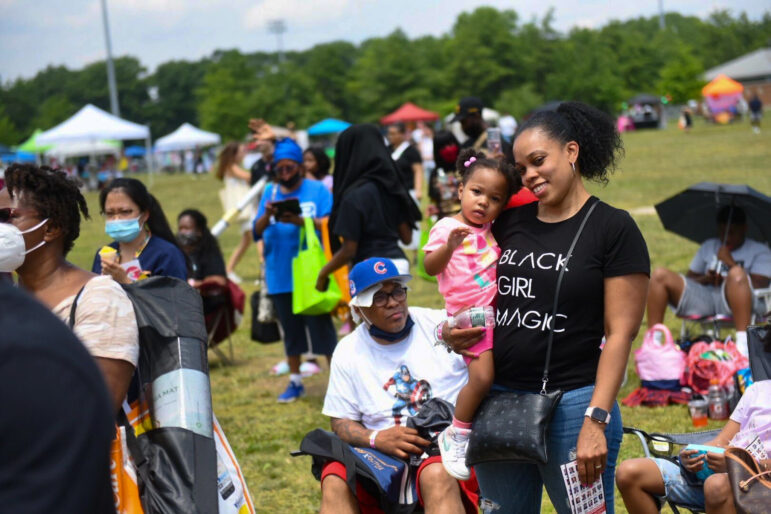


3 thoughts on “Nursing Home Lockdown Creates Unique Problems for Seniors and Families”
I can relate. God willing my mom will be 100 this June. She is being well taken care of at the Bushwick rehab center. I can’t visit and miss her but for her safety and for the other residents and staff I know this is necessary
Mary Lou calls and helps her talk to me. Her vision and hearing is tough. Just wanted to say you are not alone. This should have been the best of times to be with a loved one now we can only pray for. A miracle of healing. God bless all senior staff for your support and selfless defecation.
Dedication!
Fat fingers. But most staff deal with this as well so sorry
I am very concerned about my 97 year old mother. She has been in a nursing home for 2 years and has some dementia and confusion. I was visiting her on a daily basis until they locked out visitors because of the coronavirus several weeks ago. The staff there seemed very dedicated and pretty good about taking care of mom’s needs, but since the ban on visitors I am not sure they’re taking proper care of the residents. They are no longer allowed to go to the dining area for meals or activities, which I understand, but it seems like there are very few times when they’re allowed to leave their rooms at all. No one takes them out for hall walks or make sure they’re not just “locked in” their rooms day and night. I video chat when they allow, a few times per week, but more often than not my mom is still in her bed at 1:00, 2:00, today it was 3:00 pm! They uses to get her out of bed and into her wheelchair nearly every morning. Many afternoons they haven’t even put her hearing aids in. I can’t imagine these poor folks having to lie in bed all day and night, not even able to hear the tv or phone calls. I don’t know what to do to make sure these nursing homes that are no longer allowing visitors are not mistreating the residents. Is anyone monitoring this? I hesitate to complain because, who knows, that may make them treat her even worse. How do we know if our loved ones are being properly cared for? They can basically do whatever they want now that no one is allowed in!